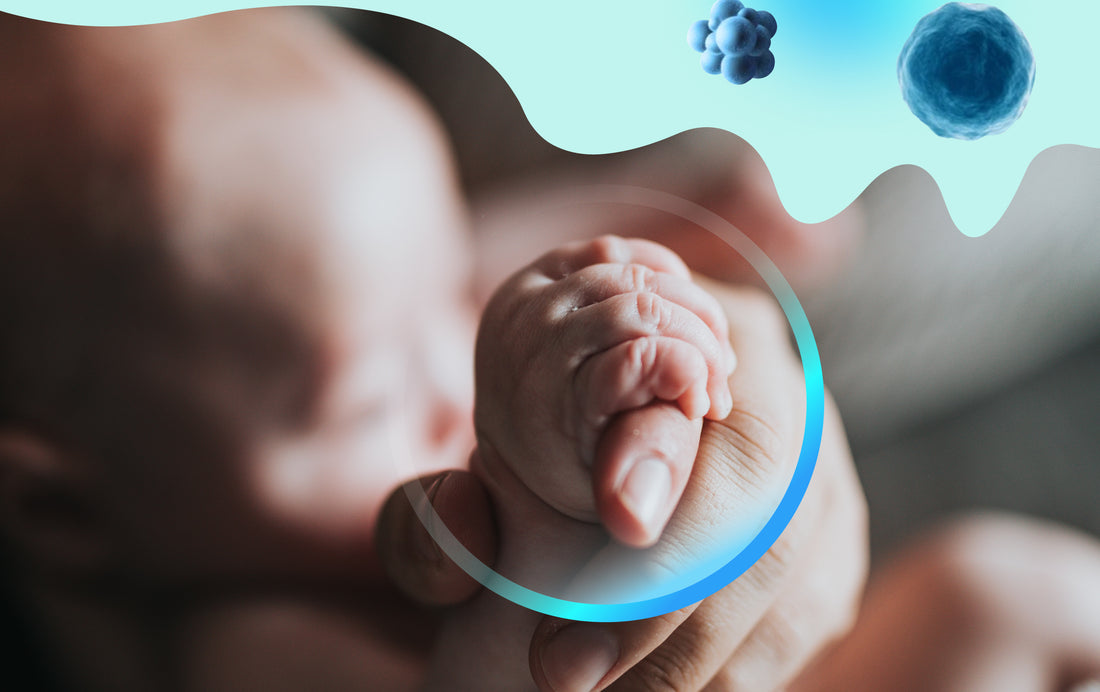
The Father's Role and the Baby Microbiome
Share
The Father's Role: How Paternal Microbiota Influence his Baby's Biota
The importance of the maternal-infant microbial relationship has been well-documented in the literature. In particular, the focus has been on its crucial role in providing the infant with stewardship to develop their overall health and well-being via microbial inheritance. This relationship is developed mostly through a vaginal birth and breastfeeding, and again, the emphasis has been centered on the maternal role. While the acquired microbes, which direct the baby's immunological future, depend on the type of birth and nourishment, skin-to-skin contact after birth also plays a major role in the baby's acquisition of life-long microbial make-up. The World Health Organization (WHO) recommends skin-to-skin contact of newborns with their mothers after birth to promote breastfeeding and prevent hypothermia. However, the transfer of microbial skin communities from other forms of social contact also plays an equally important role, varying by skin site and environmental factors such as economic status, geographic location, and sibling or pet contacts.
What About the Father's Microbiome?
In the mother-infant-microbe conversation, the role of dad has been ignored. Paternal care of offspring is documented in birds, mammals, and fish. Exclusive paternal care in humans is rare and usually occurs alongside maternal care, although it does occur in non-human species, as noted. Fathers often assist in infant feeding, grooming, caring for siblings, and providing economic stability. Research is now emerging demonstrating a more poignant role of the paternal microbial factors in their offspring.
Let's consider the potential role of the microbes in the evaluation of the paternal influence. It is now recognized that microbes play a significant part in affecting the hosts' health and behavior through pathways such as the gut-brain-axis. Studies (and articles by 'The Better Biome Collective') have shown the links between microbes and mood, social interactions as well as behaviors. Most of the scientific literature focuses on microbial inheritance via birth and feeding methods, as previously noted. However, microbes can also be transmitted horizontally via dad's role in the above-mentioned behaviors as well as sexual intimacy with mom. Via computational models, the idea that both mom and dad's behavior can be driven by the microbes themselves and hence help their own propagation is presently being analyzed by researchers.
Genetics or Germs?: How Microbes Contribute to Paternal Care
Scientists from the School of Plant Sciences and Food Security at Tel-Aviv University, Israel, created microbe-associated behavior into a mathematical model trying to understand the evolutionary conundrum of the role of paternal care. Their model demonstrated that when paternal care is induced by microbes rather than dad's genetic make-up, the range of conditions in which paternal care could evolve broadens. This group examined two extremes; paternal care governed by host genes or microbial genes. It appears that both factors are likely involved leading to a more nuanced and balanced result. Their model predicted that paternal care evolved further when paternal-offspring interactions (feeding, grooming, etc.) were high.
Fatherly Duties: Setting up Your Baby's Microbiome for Success
Despite the lack of literature regarding the role of the dad's microbial contribution to the baby, common sense dictates that families (including pets) share microbial communities. Monozygotic twins (identical) are not more similar than dizygotic (fraternal) twins and their biological parents in terms of their microbial communities. Interestingly, individuals sitting in a lecture hall will share microbes with the person adjacent to them. (Perhaps this explains why we take a moment before finding a seat in a movie theatre or a lecture.) These examples highlight the fact that contact brings diverse microbial communities in close association, and when families cohabitate, the microbes mix. Thus, there is an obvious contribution from dad to mom directly as well as to the baby. The larger question looming is why the scientific community has essentially ignored this topic?
By identifying the paternal contribution, the logical sequelae include increased responsibility and self-care on the part of the father. Conversations also must widen to include alteration of behavioral influences on dad's health and well-being which directly affect their microbiota. Self-care and pre-pregnancy care has often fallen into the maternal realm, but if we acknowledge the also important paternal role in terms of microbial health, dads need to step up to the plate. This will include lifestyle modifications prior to conception in order to enhance mom's microbes since this is what will be passed on to the baby after birth. The same recommendations given to mom to support her health (as well as her microbes) to ensure a healthy pregnancy and fetal outcome will also need to be adhered to by dad, which includes nutritional counseling (such as organic diets), avoiding toxic exposures, dealing with stress, etc.
There is no doubt that research on the paternal microbiota and its influence on their future offspring is lacking. The evolutionary paternal role can be further delineated when we better understand the microbial component and how dads can maximize their own health, enhance the health of their microbes and allow the microbes to enhance the health of their future families.

Dr. Michelle Perro, MD, DHOM
Integrative Pediatrician
With over 38 years in acute and integrative medicine, Dr. Perro is a veteran pediatrician. Over fifteen years ago, she revolutionized her clinical practice to integrate pesticide and health advocacy. During her long career, she both directed and worked as an attending physician in New York’s Metropolitan Hospital and UCSF Benioff Children’s Hospital Oakland. She has also managed her own company, Down to Earth Pediatrics, which innovated a new field of integrative urgent care medicine. Dr. Perro co-authored the acclaimed book, What’s Making our Children Sick, has authored numerous publications, and writes a new column in the journal, Townsend Letter. Currently, she lectures, consults, works at the Northern California integrative health center, Gordon Medical Associates, and is Executive Director of the non-profit scientific-based website GMOScience.org.
Collective members are paid sponsors and receive compensation for their content, but all opinions are their own.
